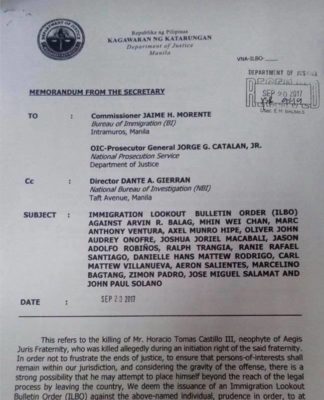 WHEN Pope Francis invited non-believers, particularly atheists and agnostics, to seek God’s forgiveness to attain salvation, the media announced that Catholic doctrine had been changed. Vatican officials tried to rectify the impression, saying that Christ died for every human being and it is through actively asking for His mercy that even non-believers can be saved.
WHEN Pope Francis invited non-believers, particularly atheists and agnostics, to seek God’s forgiveness to attain salvation, the media announced that Catholic doctrine had been changed. Vatican officials tried to rectify the impression, saying that Christ died for every human being and it is through actively asking for His mercy that even non-believers can be saved.
Catholics were probably also confused during such time. And it is at times like these that our faith is put to the test.
And it is also at times like these that the most common questions in faith appear again—does God really exist? Is atheism a grave sin? What is the basis behind the claim that salvation is only with those belonging to the Catholic Church? So what if there is a God anyway?
One cannot simply answer all those questions in a 500-word essay or even in a 500-page book. These notions have already been debated for centuries by theologians and philosophers, discussed in thousands of forums, and published in books or else directly answered by Catholic Church leaders. On campus the best-known method of proving God’s existence would probably be St. Thomas Aquinas’ five ways.
Yet the human race has not stopped in this quest.
Blaise Pascal is known in the field of physics and mathematics. But in the latter part of his life, he turned to religious philosophy. And his “Pensee” is probably one of the easiest philosophical readings to understand in discussing God’s existence and one of those that is more personal.
“Let us weigh the gain and the loss in wagering that God is. Let us estimate these two chances. If you gain, you gain all; if you lose, you lose nothing. Wager them without hesitation that He is,” Pascal said.
We can never fully grasp the idea of Him. We all knew that from the beginning. But it should not stop us from having faith in a Father who gave us everything, including our free will, including the independence to choose whether to wager or not.
What Pascal is emphasizing is that we have everything to gain and nothing to lose in choosing to have faith in God.
Perhaps the faith has been seen today as too complex to be known and too rigid to embraced. And most of the time, tragedies and unanswered prayers eradicate it. But for me, it is in despair that the faith manifests its power.
When Elizabeth Gilbert, in her novel “Eat, Pray, Love,” spoke to God for the first time while she was experiencing clinical depression, she found a voice that expressed unconditional love and a comforting presence that never left.
When photos of Pope Francis embracing a man afflicted by a grave illness that disfigured his appearance spread around the world, people started to talk more about humility, helping the poor and compassion.
In making that wager, we must not hesitate in living in the path laid down by God. Where else can we go?
It is this simple. “It is the heart which experiences God, and not the reason. This, then, is faith; God felt by the heart, not by reason,” Pascal wrote. And in faith, we can find happiness, the end that all of mankind is seeking.















